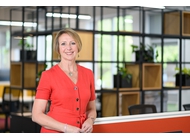Ellume and Cambridge Consultants Collaborate on Core Technology Behind Ellume’s Rapid Antigen COVID-19 Test
- Date 16 Mar 2021
Today, digital diagnostics company Ellume highlights the revolutionary technology created in partnership with global product development and technology consultancy firm, Cambridge Consultants, part of the Capgemini Group. Together, the two companies have developed a next-generation, multi-component reader that combines optics, electronics and software, and powers the core technology behind the Ellume COVID-19 Home Test. Ellume’s test is the first rapid self-test for COVID-19 detection granted Emergency Authorization Use by the U.S. FDA for both asymptomatic and symptomatic use without a prescription. In February, Ellume announced a $231.8 million agreement with the U.S. government , including the delivery of 8.5 million Ellume COVID-19 Home Tests to support the U.S. government’s pandemic response and the establishment of Ellume’s first U.S. manufacturing facility.
The success of this test can be attributed in large part to the several years of work from the global, multidisciplinary team at Cambridge Consultants to create an ultrasensitive, optoelectronic detection system that is used across all of Ellume’s diagnostics products. This technology includes a sensitive, but inexpensive reader to detect and interpret the near-infrared photons emitted from a quantum dot captured at the test zones of a lateral flow test strip. The reader, coupled with Ellume’s supercharged fluorescent immunochromatography, delivers world-leading specificity and sensitivity.
“The Cambridge Consultants team’s dedicated work and novel approach helped us to create a highly accurate and quantitative digital immunoassay that is also affordable, robust and simple to use – the crucial elements at the heart of successful at-home testing,” said Dr. Sean Parsons, CEO and founder of Ellume. “At-home, rapid testing is key to slowing the spread of COVID-19 in the coming months. Without Cambridge Consultants and their continued partnership over the years, we wouldn’t have been able to achieve technical success.”



